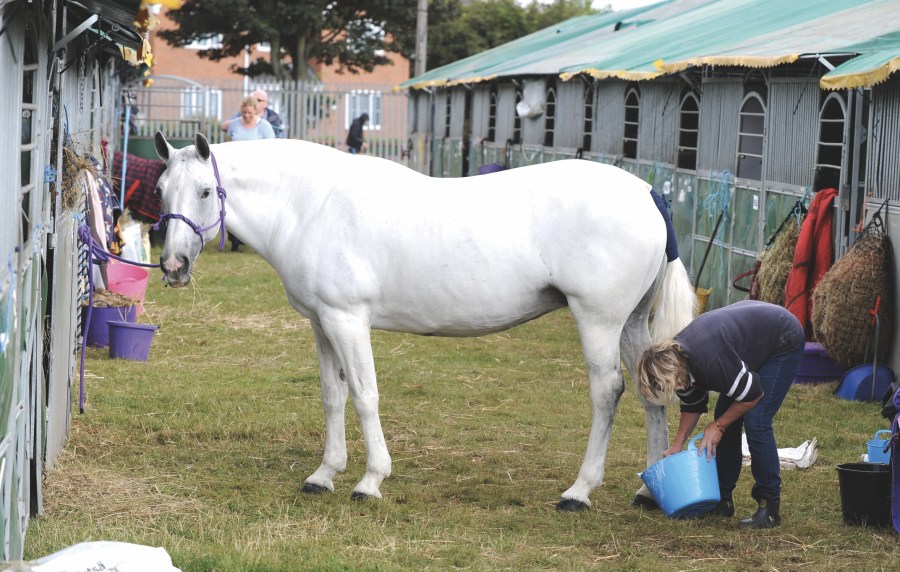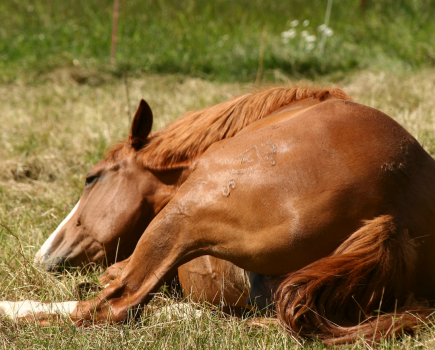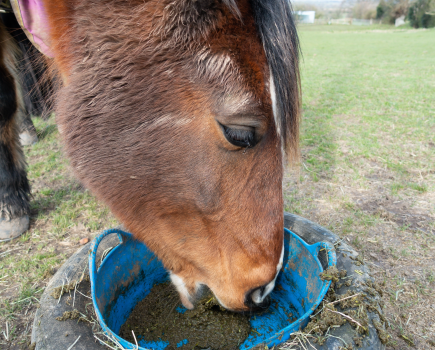With more than 50% of the UK’s equine population overweight, it’s more important than ever to keep your horse’s weight in check in order to help them be healthy, happy and #FitnotFat.
Think equine obesity is a summer problem? That’s incorrect: due to the growing trend of horses and ponies not losing weight in winter (as nature intended) — due to rugging, feeding, management practices and reduced exercise, for example — more equines than ever are coming out of winter carrying too much weight. And then, when spring arrives, the grass starts to grow and they pile on the pounds — catapulting them into the danger zone for serious health concerns, such as laminitis. Below, Libby Smith from the British Equine Veterinary Association explains why being overweight is bad for your horse.
1 Orthopaedic disorders
There is a myriad of secondary health complications linked to being overweight. In young horses, too much weight on developing skeletal systems can result in orthopaedic disorders. We typically think of this being an issue in young horses who start ridden work too early, but it can also be caused by excess weight on a young frame. This can cause immediate discomfort and limit long-term athletic ability.
Similarly, in horses with arthritis, the more they weigh, the more uncomfortable they will be, as the owner will be placing more weight on a load-bearing surface that is already damaged. This mirrors NHS information in the human field that identifies being overweight as a trigger for back pain — for which one treatment is weight loss.
2 Reduced performance
Another more subtle outcome of being overweight is a reduction in performance. You might be feeding your horse a diet that’s designed to give him energy, and may feel it now doesn’t make sense that he seems more lethargic and lacks the speed and/ or stamina he once had.
For anyone who has ever returned to exercise following a Christmas break, or an indulgent holiday with access to an all-you-can-eat buffet, those first few sessions can feel extra hard. You keep breaking into walk when you’re supposed to be running, you lack the strength to lift the weights you did before, and everything feels like a huge challenge. This is similar to how your horse feels after too much free access to the grass buffet — the more we weigh, the harder it is to perform.
There’s a reason why the likes of Mo Farah, Eliud Kipchoge and other elite marathon runners are all lean. It’s the same reason we expect elite performance horses to be lithe and well-muscled in order to perform at their best.
3 Hormonal problems
One of the biggest complications of being overweight is the development of a hormonal disorder called insulin resistance, which is often confused and linked to equine metabolic syndrome (EMS).
EMS is a term given to horses who demonstrate three problems:
- A history, or current episode, of laminitis
- Focal fat deposition (regional adiposity)
- Insulin resistance (IR)
EMS is a man-made disorder that is reflective of overeating and underactivity and, in this respect, it is similar to type 2 diabetes in humans. In order to say that a horse has EMS, he must present with all three of these problems.
It is possible to have a horse with IR who doesn’t have EMS because he doesn’t have laminitis. But this is still a problem and could lead to laminitis and therefore EMS in the future. However, the term EMS doesn’t apply in this instance and the management that will be recommended will therefore be different.
![]() Have you heard about Your Horse’s #FitNotFat campaign, which is supported by Dodson & Horrell? Equine obesity is an enormous welfare problem and we’re on a mission to provide owners and riders with the knowledge, skills and information you need to keep your horse in tip-top health. It could be life saving! Find out more
Have you heard about Your Horse’s #FitNotFat campaign, which is supported by Dodson & Horrell? Equine obesity is an enormous welfare problem and we’re on a mission to provide owners and riders with the knowledge, skills and information you need to keep your horse in tip-top health. It could be life saving! Find out more
Meet the expert: Libby Smith is a member of the British Equine Veterinary Association (BEVA) and registered veterinary nurse (RVN) who works within the equine team at Westover Vets in Norfolk, where she is developing her interest in equine nutrition.









